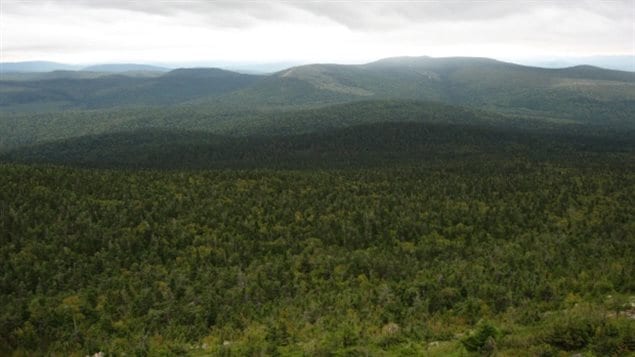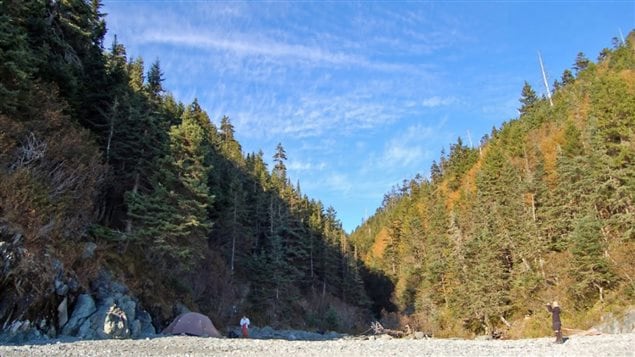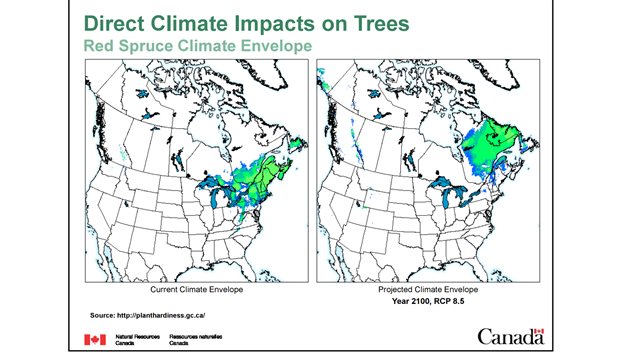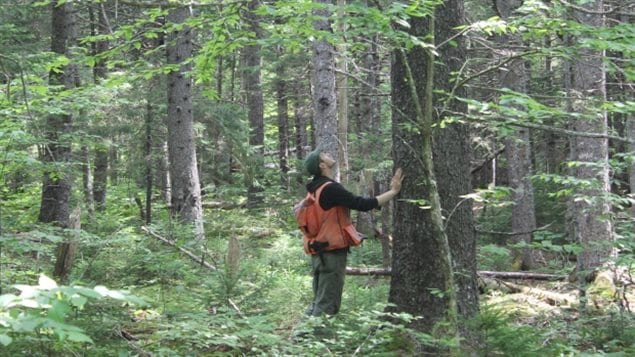Canada’s eastern maritime provinces, notably New Brunswick, Nova Scotia, Prince-Edward Island, and into Quebec’s Gaspe peninsula, are home to a unique forest type.

It’s called the “Acadian forest”, and it is one of eight forest types in Canada. Throughout this region the climate enables a mix of Northern Hardwood and Boreal forest. This means a tree mix of 32 native species of hardwoods and softwoods unique in the world.
A new study shows climate change may eventually cause the Acadian forest type to change significantly by the end of this century.

The study shows that as the climate warms, the boreal softwoods such as spruce, pine, balsam and fir which prefer a cooler climate and which currently make up about 50-60 % of the maritime forests will begin to suffer. He also notes that species that prefer a more temperate climate like red maple and oak will increase,

The study’s author is scientist Anthony Taylor a researcher in the Fredericton New Brunswick office of the Canadian Forestry Service. He says the modelling he used has some uncertainties due to variables still being studied but seems to indicate a 20 % loss of the cold adapted species. He notes also that even the hardwood may suffer if the climate warms too much.
The study published in the journal Forest Ecology and Management, is entitled, Rapid 21st century climate change projected to shift composition and growth of Canada’s Acadian Forest Region. (abstract HERE)
He notes that the overall size of the Acadian forest will decrease as the increase in hardwoods won’t make up for the loss of softwood trees.
As to the economic effects, the forest industry in New Brunswick represents about 5 % of the provincial gross domestic product of which softwood is a major component.

He says also that the maritime pulpwood industry which relies heavily on these species should take note of the coming changes, and include planting of softwood species that do better in warming climates.
Van Lantz, a University of New Brunswick professor of forest economics is quoted by the Canadian Press saying, “”It’s very worrying. … When the timber supply is reduced by a certain percentage you get a similar reduction in the forestry sector and that’s a lot of money”.
Although not part of this report, earlier studies by Taylor and others suggest increased forest fire hazards, and wildlife changes as the forest changes.
additional information- sources
- Canadian Forest Service- 2016 Climate change impacts maritime forestry
- Canadian Press (via CBC): M Tutton: Oct 28/17: decline due to global warming
- Halifax Herald;J McPhee: OPct 27/17: climate change endangers softwoods
- CBC: Apr 8/15: group sees dramatic change in Acadian forest
- CBC: M-J Burgos: Aug 30/17: conservancy group saving the Acadian forest







For reasons beyond our control, and for an undetermined period of time, our comment section is now closed. However, our social networks remain open to your contributions.